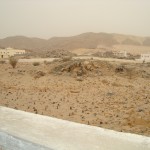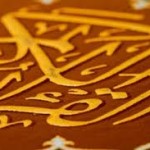Is there a contradiction in the following verses?
QUESTION:
Asalamu Alaykum. I hope you are in good health. Whilst reading the Holy Quran, I found some differences that I found difficult to reconcile. I would be grateful for any help.
- In Quran 7:109, the people of Pharaoh states that “Indeed, this is around him, a learned magician” but in 26:34, it is the Pharaoh himself who says it. Please can you explain this difference.
- In Quran 11:40, Noah receives the instructions when the flood is commanded, but in 23:27, he receives these same instructions earlier.
- In Quran 11:70, the angels tell Ibrahim (as) that they have been sent to the people of Lot as they greet him, but in 15:57 and 51:31, Ibrahim (as) asks the angels for what purpose have they been sent.
JazakAllah khair for your time and help
ANSWER:
In the Name of Allah, the Most Gracious, the Most Merciful.
As-salāmu ‘alaykum wa-rahmatullāhi wa-barakātuh.
Whilst we commend you for seeking out answers in a reasonable manner, we recommend that you study the Holy Qur’ān under the supervision of a qualified, learned teacher and through reliable and accurate means. The great scholar Muhammad ibn Sīrīn (110 AH) said:
إن هذا العلم دين فانظروا عمن تأخذون دينكم
This knowledge is our religion; so take care in who you take your religion from. [1]
Without such guidance, one is prone to either confusion, mistakes or misunderstandings when accessing the mere translation of any technical scripture, let alone the Holy Qur’ān. With regards to your question, please see below.
- The first verses which you quoted are as follows:
قَالَ ٱلۡمَلَأُ مِن قَوۡمِ فِرۡعَوۡنَ إِنَّ هَـٰذَا لَسَـٰحِرٌ عَلِیمࣱ
The chiefs of the people of Pharaoh said, “Verily this [man] is an expert sorcerer” [2]
قَالَ لِلۡمَلَإِ حَوۡلَهُۥۤ إِنَّ هَـٰذَا لَسَـٰحِرٌ عَلِیمࣱ
He [Pharaoh] said to the chiefs around him, “Verily this [man] is an expert sorcerer” [3]
Though the above verses may seem contradictory, in essence, there is no contradiction. ‘Allāmah Mansūr (333 AH), may Allah have mercy upon him, explains:
وقوله – تعالى -: (قال الملأ من قوم فرعون إن هذا لساحر عليم (١٠٩) وقال في آية أخرى: (قال للملإ حوله إن هذا لساحر عليم) يحتمل أن يكون فرعون قال للملأ: إن هذا كذا، ثم قال الملأ لقومه: إن هذا لساحر عليم، أراد – والله أعلم – تلبيس ما أتى به موسى من الآية على قومه
“It is conceivable that Fir’awn said to his chiefs, ‘Verily this man is such and such. Thereafter, his chiefs said to the people, ‘Verily this [man] is an expert sorcerer’” [4]
- The next verses which you mentioned are as follows:
حَتَّىٰۤ إِذَا جَاۤءَ أَمۡرُنَا وَفَارَ ٱلتَّنُّورُ قُلۡنَا ٱحۡمِلۡ فِیهَا مِن كُلࣲّ زَوۡجَیۡنِ ٱثۡنَیۡنِ وَأَهۡلَكَ إِلَّا مَن سَبَقَ عَلَیۡهِ ٱلۡقَوۡلُ وَمَنۡ ءَامَنَۚ وَمَاۤ ءَامَنَ مَعَهُۥۤ إِلَّا قَلِیلࣱ
“At last, when Our command came and the oven overflowed, We said, “Take into the Ark a pair of two from every species, along with your family, except those against whom the Word has already been pronounced, and [also take into it] those who have believed.” And there were only a few who had believed with him.” [5]
فَأَوۡحَیۡنَاۤ إِلَیۡهِ أَنِ ٱصۡنَعِ ٱلۡفُلۡكَ بِأَعۡیُنِنَا وَوَحۡیِنَا فَإِذَا جَاۤءَ أَمۡرُنَا وَفَارَ ٱلتَّنُّورُ فَٱسۡلُكۡ فِیهَا مِن كُلࣲّ زَوۡجَیۡنِ ٱثۡنَیۡنِ وَأَهۡلَكَ إِلَّا مَن سَبَقَ عَلَیۡهِ ٱلۡقَوۡلُ مِنۡهُمۡۖ وَلَا تُخَـٰطِبۡنِی فِی ٱلَّذِینَ ظَلَمُوۤا۟ إِنَّهُم مُّغۡرَقُونَ
“So We inspired to him, “Construct the ship under Our observation and Our inspiration, and when Our command comes and the oven overflows, put into it [i.e. the ship] from each [creature] two mates and your family, except him for whom the decree [of destruction] has proceeded. And do not address Me concerning those who have wronged; indeed, they are to be drowned.” [6]
Similarly, there is no contradiction in these verses. Abu al-Sa’ūd (982 AH), ‘Allāmah Ālūsī (1270 AH) and ibn ‘Ashūr (1393 AH) [7], may Allah have mercy upon all of them, have all mentioned that there was revelation prior to the promised sign as well as after the promised sign to bring a sense of haste to the matter at hand.
- The final verses which you mentioned are as follows:
فَلَمَّا رَءَاۤ أَیۡدِیَهُمۡ لَا تَصِلُ إِلَیۡهِ نَكِرَهُمۡ وَأَوۡجَسَ مِنۡهُمۡ خِیفَةࣰۚ قَالُوا۟ لَا تَخَفۡ إِنَّاۤ أُرۡسِلۡنَاۤ إِلَىٰ قَوۡمِ لُوطࣲ
“When he saw that their hands did not reach towards the meal, he found this strange and became afraid of them. But they said, ‘Do not be afraid. We have been sent against the people of Lot.’” [8]
قَالَ فَمَا خَطۡبُكُمۡ أَیُّهَا ٱلۡمُرۡسَلُونَ – قَالُوۤا۟ إِنَّاۤ أُرۡسِلۡنَاۤ إِلَىٰ قَوۡمࣲ مُّجۡرِمِینَ
“He said, “Then, what is your mission, O messengers?”. They said, “We have been sent to a sinful people”” [9]
In these verses, the difference in address is not seen as a contradiction as explained by ‘Allāmah Mansūr (333 AH), may Allah have mercy upon him, whilst commenting on verse 11:70:
وقال في موضع آخر: (لا تخف وبشروه بغلام عليم)، وقال: (فما خطبكم أيها المرسلون) يذكر هاهنا أن قولهم: (إنا أرسلنا) على أثر سؤال، وفيما نحن فيه لا كذلك؛ فالمعنى فيه – والله أعلم – أن ذلك كان على أثر سؤال إبراهيم بقوله: (فما خطبكم)، لكنه جمع ذلك فيما نحن فيه بالحكاية عن قولهم، وإن كان مفصولا عنه، وخرجت الحكاية في موضع آخر على ما كان في الحقيقة، وذلك مستقيم في كلام العرب، والله أعلم
And He [Allah] mentions in another verse, ”[They said] ‘Do not be afraid,’ and they gave him good news of a son who would be gifted with knowledge.” He [Allah] also mentions, “Then, what is your mission, O Messengers?”. It is worth noting here that their answer, ”We have been sent” is subsequent to a question. However, the verse which we are currently discussing does not appear to be such. Thus, the understanding with regards to this is – And Allah Ta’ālā knows best – that it [this current ayah] is also subsequent to the question of Ibrāhīm (peace be upon him), “What is your mission”. However, it has been omitted in words in place of their answer even though their answer is to the question (in 15:57 and 51:31). This method [of narrating an incident] is sound in the Arabic language. [10]
Thus, we strongly advise that you study the Holy Qur’ān under the supervision of a reputable learned scholar and we pray that Allah Ta’ālā guides us all to the straight path. Āmeen.
And Allah Ta’ālā Knows Best
Abdullah Teladia
Concurred by:
Hanif Yusuf | Zayd Imran
References
[1]
[Sahīh Muslim: Dār Ihyā al-Turāth al-'Arabī: 1:12]
[2]
[al-Qur'ān: 7:109]
[3]
[al-Qur'ān: 26:34]
[4]
[Ta'wīlāt Ahl al-Sunnah: DKi: 4:521]
See Also:
للسائل أن يسأل في هذه القصة عن مسائل: أولها: قوله في سورة الأعراف ١٠٩-١١٠. (قال الملأ من قوم فرعون إن هذا لساحر عليم* يريد أن يخرجكم من أرضكم) ثم قال في سورة الشعراء ٣٤. (قال للملأ حوله إن هذا لساحر عليم) فأخبر في الأولى أن قائل ذلك الملأ من قومه وفي الثانية أن فرعون هو القائل ذلك لملئه، وهذا اختلاف ظاهر في الخبرين؟
والجواب أن يقال: إن قول الملأ فيما حكاه الله تعالى في سورة الأعراف قول فرعون، أداه عنه رؤساء قومه إلى عامة اصحابه، والدليل على أن ذلك قوله، وأنهم فيه مؤدو رسالة عنه قول العامة في جوابه: (أرجه وأخاه) الأعراف: ١١١، فكان هذا خطابا لفرعون ولم يكن للملأ، إذ لو كان لهم لكان: أرجوه وأخاه وإذا كان كذلك لم يخالف ما قاله في الشعراء من أنه: (قال للملأ حوله) الشعراء: ٣٤ بل يكون هو البادئ بذلك لمن حوله ليؤدوا إلى من بعد عنه قوله فإن قال قائل: فكيف اختصت سورة الأعراف بحكاية ما قال الملأ، وسورة الشعراء بما قاله فرعون؟
قيل: إن أول من رد قول موسى عليه السلام فرعون، ثم مالأنه عليه ملؤه، وهو ما حكاه الله تعالى في سورة الشعراء واقتص حاله حيث أخبر عنه بما قاله: (ألم نربك فينا وليدا ولبثت فينا من عمرك سنين) الشعراء: ١٨. إلى أن انتهت الآيات إلى القصة المودعة ذكر السحرة، فقل فرعون للملأ حوله ما أدوه عنه إلى غيرهم، وسورة الشعراء مكية كسورة الأعراف، وترتيب الاقتصاص يقتضي أن تكون قبلها، وفي السورة الثانية أخبر عما أداه عنه ملؤه إلى الناس الذين أجابوه بأن (أرجه وأخاه) فكان قول فرعون للملأ حوله سابقا قول الملأ الذين أدوا إلى غيرهم قوله، فذكر حيث قصد اقتصاص أول من دعاء موسى عليه السلام إلى طاعة الله تعالى
[Durrah al-Tanzīl: Jāmi'ah Umm al-Qur'ā: 2:650]
قوله تعالى: قال الملأ من قوم فرعون إن هذا لساحر عليم. بين هنا أن موسى لما جاء بآية العصا واليد قال الملأ من قوم فرعون إنه ساحر، ولم يبين ماذا قال فرعون: ولكنه بين في «الشعراء» أن فرعون قال مثل ما قال الملأ من قومه، وذلك في قوله تعالى: قال للملإ حوله إن هذا لساحر عليم [٢٦ \ ٣٤]
[Adwā' al-Bayān: Dār al-Fikr: 2:38]
فإن قيل: قد أخبر الله تعالى في هذه السورة أن هذا الكلام من قول الملأ لفرعون وقال في سورة الشعراء وقال أي: فرعون للملأ حوله: ﴿إن هذا لساحر عليم﴾ (الشعراء، ٣٤) فكيف الجمع بينهما؟ أجيب: عن ذلك بجوابين: الأول: لا يمتنع أن يكون قاله فرعون أولا ثم إنهم قالوه بعده فأخبر الله عنهم هنا وأخبر عن فرعون في سورة الشعراء. الثاني: أن فرعون قال هذا القول ثم إن الملأ من قومه وهم خاصته سمعوه منه ثم إنهم بلغوه إلى العامة فأخبر الله تعالى هنا عن الملأ وأخبر هناك عن فرعون
[al-Sirāj al-Munīr: Matba'ah Būlāq: 1:499]
[5]
[al-Qur'ān: 11:40]
[6]
[al-Qur'ān: 23:27]
[7]
والآية صريحة في أن الأمر بالإدخال كان قبل صنعه الفلك، وفي سورة [هود: 40] ﴿حتى إذا جاء أمرنا وفار التنور قلنا احمل فيها من كل زوجين﴾ فالوجه أن يحمل على أنه حكاية لأمر آخر تنجيزي ورد عند فوران التنور الذي نيط به الأمر التعليقي اعتناء بشأن المأمور به أو على أن ذلك هو الأمر السابق بعينه لكن لما كان الأمر التعليقي قبل تحقق المعلق به في حق إيجاب المأمور به بمنزلة العدم جعل كأنه إنما حدث عند تحققه فحكي على صورة التنجيز
[Rūh al-Ma'ānī: DKi: 9:229]
وهذا صريح في أن الأمر كان قبل صنعه الفلك، وفي سورة هود: ﴿حتى إذا جاء أمرنا وفار التنور قلنا احمل فيها من كل زوجين﴾، فالوجه أن يحمل إما على أنه حكاية لأمر آخر تنجيزي ورد عند فوران التنور الذي نيط به الأمر التعليقي اعتناء بشأن المأمور به، أو على أن ذلك هو الأمر السابق بعينه، لكن لما كان الأمر التعليقي قبل تحقق المعلق به في حق إيجاب المأمور به بمنزلة العدم جعل كأنه إنما حدث عند تحققه فحكي على صورة النجيز
[Tafsīr Abī al-Sa'ūd: Dār Ihyā al-Turāth: 6:131]
وإنما عبر هنالك بقوله: ﴿قلنا احمل فيها﴾ [هود: ٤٠] وهنا بقوله: ﴿فاسلك فيها﴾؛ لأن آية سورة هود حكت ما خاطبه الله به عند حدوث الطوفان وذلك وقت ضيق فأمر بأن يحمل في السفينة من أراد الله إبقاءهم، فأسند الحمل إلى نوح تمثيلا للإسراع بإركاب ما عين له في السفينة حتى كأن حاله في إدخاله إياهم حال من يحمل شيئا ليضعه في موضع، وآية هذه السورة حكت ما خاطبه الله به من قبل حدوث الطوفان إنباء بما يفعله عند حدوث الطوفان فأمره بأنه حينئذ يدخل في السفينة من عين الله إدخالهم، مع ما في ذلك من التفنن في حكاية القصة
[al-Tahrīr wa al-Tanwīr: Dār al-Tunisia: 18:46]
[8]
[al-Qur'ān: 11:70]
[9]
[al-Qur'ān: 15:57]
[10]
[Ta'wīlāt Ahl al-Sunnah: DKi: 6:155]
DISCLAIMER:
The Ask Our Imam site hopes to respond to queries relating to Islamic law. It is not an Islamic Law Shari`ah Court. The questions and answers found on this website are for educational purposes. However, many of the rulings rendered here are distinct to the specific scenario and thus should be read in conjunction with the question and not taken as a basis to establish a verdict in another situation or environment. This site bears no responsibility in these responses being used out of their intended context, nor to any party who may or may not follow the responses given and is being hereby exempted from loss or damage howsoever caused. None of the responses rendered may be used as evidence in any Court of Law without prior written consent of Our Imam. Any reference to another website or link provided in our responses or article should not be taken as an endorsement of all the content on that website; in fact, it is restricted to the particular material being cited.
Posted in Aqaa'id (Beliefs)MiscelleaneousQur'an & Hadeeth on 10th Oct 2022 by Our Imam | 557 Views





